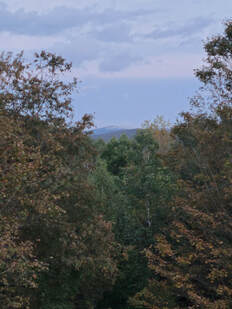 As the days are getting shorter and the weather cooler, I’m increasingly aware of the changes I’ve had to make living in my current home. My partner built a very cool house that reminds me, and many others, of a treehouse. It looks like a big barn with a wooden silo attached. With the windows wide open, even now in the cooler weather, and our living space being up on the second and third floors, it feels like I’m living in the trees. I love it! The house is off-the-grid and powered by solar energy with a woodstove and a couple of small propane heaters. The large windows face south, and the outside walls were built with six-inch thick pre-insulated panels. We often don’t even need to start a fire until the afternoon during the winter. We actually use very little electricity. The house is set up for a 12-volt system with a converter for appliances, computers, etcetera, including the music studio equipment. Our refrigerator and pump are 12-volts as is all of the built-in lighting. That said, we do sometimes have to run a generator on cloudy days or in the winter, when we get less sunlight even on sunny days. I’ve had to learn to shop for food differently because our refrigerator is smaller than I was used to and sometimes shuts off, if the power is too low. We don’t have a washer or dryer, so we make trips to the laudromat. In the winter, I often can’t use my desktop and have learned to use my phone and iPad more often. I wear layers when it’s cold and only use my blender or waffle iron on sunny days. We only light the rooms we are in at the time, and I often use battery powered lights. Is it difficult sometimes? Yes, it is. But it’s worth it. I love living like this. And, I adjusted to it quicker than I expected. In all fairness, I didn't expect that it would be much different, but it is. Recently, a neighbor gave us seven solar panels because he had just upgraded his system and no longer needed them. This is going to make a huge difference to us. In redoing the deck up on the roof, J. built a rack for these new panels. We’re just waiting for the new charge controller to arrive, and he will wire them to the system in time for the darker days. I’ll have to wait and see how much of a difference it will make, but any difference is an improvement. It probably means that I can use my computer more often in the winter and on cloudy or rainy days. It probably means that the refrigerator will run consistently, and we’ll use the generator much less. I already feel as though I live in paradise, living the life I never even imagined was possible. This will feel almost decadent.
In the past seven years, I’ve gone from struggling financially just to stay afloat to being able to invest in myself in ways I thought were impossible. I run a successful business and am moving forward with my music. I have access to a recording studio, video production and an outdoor stage for events. I have a supportive partner who is not in competition with me and who wants to help out in whatever ways he can. My children are all independent and doing well. It’s the first time in my life that I don’t feel responsible for anyone else or worry about their well-being. I certainly care deeply for my children and grandchildren and will continue to be there for them when needed, but I no longer feel immersed in their various dramas. I don’t feel as though I have to fix anything, and it is such a relief. I have lived here almost seven years now and look forward to each year ahead. I couldn’t ask for a better, more peaceful and serene environment. It has stimulated my creativity and nourished my soul. Last night we spent time on the finished deck, looking out over the tops of the trees as the sun was setting. The solar lights in the yard started blinking on, the evening start appeared, and all we could hear was the sounds of nature all around us. Then we walked down to the outdoor stage with its solar lights all ablaze, and I counted my blessings as I watched the stars peeking out of the darkened sky above us. Life is good.
0 Comments
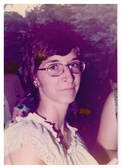 When I was nine years old, I was offered music lessons at school. I chose the violin. My parents borrowed one from a friend. It was a nice instrument but was a full-sized violin and a little too big for me. I didn’t care. I knew I loved music more than anything and was anxious to learn to play it. Unfortunately, the violin is a difficult instrument to play well at first, and it squeaked and squealed all the time. I tried playing it softer, but that only made it worse. My parents had no patience for it, so they sent me into the dark, dank, dirty, dingy basement to practice. In spite of that, I still practiced every day. Then the teasing started. My dad bordered on cruel with his teasing. He had learned the art from his family and practiced it regularly on me and my brother. My brother learned it from my dad and joined in. Finally, it became too much for me, so I quit the lessons and returned the violin. A few months later, I overheard my parents talking about a piano they had been offered. It would cost them fifty dollars if they moved it themselves. I ran in the room and literally got down on my knees, begging them to buy it. Of course, they reminded me that I had tried one instrument already and quit. I tried to explain that the teasing had caused me to quit, but that only made Dad angry. I reminded them tearfully that I had practiced every day in that horrible basement until the day I quit and promised that I would also practice the piano every day. Dad agreed to go get the piano if I agreed to practice at least an hour a day, which I did. Those practices were sometimes torturous, but I stuck with it. Dad brought out his photography timer that made a loud ticking sound and clanged obnoxiously when the hour was up. It rarely ticked in the right tempo and competed with the metronome, but I learned to tune it out and keep my own rhythm. Most days, I practiced the required hour then kept at it, sometimes continuing my practice and sometimes playing my own music. I quickly noticed that when I was at the piano everyone left me alone, so it became my second sanctuary. I rarely play the piano for fun anymore because it has too much baggage, but I often use it as a tool. I managed to keep that original piano, in spite of my parents trying to get rid of it multiple times, though I recently gave it to my son. Dad wanted to be involved in my lessons, so he often sat with me during the practice hour criticizing and correcting me. Then, I would go to my lesson where the teacher explained that I had been doing it wrong. Dad didn’t believe me, so I insisted that he go with me to a couple of the lessons. Once again, this made him angry and made my life harder, so I practiced for an hour on my own, while he was at work, playing the way the teacher had instructed me then practiced another hour with Dad. As frustrating and confusing as it all was, I think it made me a better musician in the long run. I have a great sense of rhythm that I attribute to practicing with competing clicking sounds. I also can hear multiple parts in my head at the same time. For example, when I’m creating harmonies for a song, I hear all of the parts together. I can even sing rounds in my head hearing all of the parts simultaneously. I used to think that everyone could do that, but I’ve since learned that’s not necessarily true. I spent my early life trying as hard as I could to follow the rules and not make waves. Mistakes were dangerous in our home. Dad was a firm believer in corporal punishment. He took his leather belt to me at least three or four times a week. He also tormented me and my brother, constantly teasing, criticizing and belittling us. Neither of us ever did anything right. He was fond of that game of hitting you and saying with a satisfied smirk, “That was for nothing, now go do something.” He also loved to pull me into his lap then, when I got comfortable and let my guard down, he would rub his thumb on the inside of his Planter’s Peanut can and smear the grease all over the front of my glasses. He never questioned Mom who I suspect was bi-polar or had some other mental health issue. She would often change moods like flipping a light switch, and she lived in a different reality than the rest of us. Most times, I was punished for something I didn’t even know I had done. Or maybe the rules had suddenly changed without any notice. When she decided I had done something wrong, I was sent to my room to wait for Dad. Sometimes I waited for hours, knowing that I would get the belt and having no idea what it was for. I grew up believing that I was crazy because my mom certainly couldn’t be. She was my mom. She had to be right. It wasn’t until I was an adult and had witnesses to her changing reality that I realized it hadn’t been me. Until then, I lived as though I was walking on eggshells, trying not to be noticed, while knowing that violence could erupt at any time. My high school days were filled with bullying and abuse. I had been diagnosed with scoliosis the summer before my freshman year and entered a brand-new school wearing a steel and leather brace that stretched from my chin to just below my hips. It was large, uncomfortable and obtrusive. After having spent my first eight years of school in public school, this new Catholic school with all of its restrictions filled with snobby kids that I didn’t know was a nightmare for me. The bullying was cruel and relentless. One boy a year ahead of me climbed on the school roof with a gun and shot randomly before finally killing himself. Another boy committed suicide at home because of the bullying. I became anorexic and was carving designs into my forearms with straight pins. The only thing that got me through that time was music. I stuck with those lessons through high school and also took classical voice. Unfortunately, the high school that had no music or art classes until my senior year, but that didn’t stop me. Those two subjects, as well as writing, were the things I excelled at and truly loved. They were saving my life. When it was time to look at colleges, my guidance counselor told me that I had to choose only one of those subjects, so I chose my first love music and was accepted, in spite of my failing grades, into two music schools. One was Hart School of Music in Hartford, Connecticut, and the other was Seton Hill College in Western Pennsylvania. Hart had offered me a scholarship and wanted me in their music education department, but I had no interest in being a teacher. I wanted to be a performer. I had finished the music entrance exam before everyone else and had continued on to the education section just to pass the time and got a perfect score. My parents pushed for that school assuring me that I could come home every weekend. That was the last thing I wanted to do. My family was dysfunctional and violent. My mother tried to control my every thought. Believe it or not, she chose the clothes I wore every day until I moved out. Dad’s teasing got worse, and during the years that I wore the back brace, he focused on that and my physical appearance. I wanted to get as far away from home as I could and decided, against everyone’s advice, to go to Seton Hill where I was also given a scholarship. I won’t go into all of the details of why, but I failed miserably the first semester, had a mental breakdown and was sent home. It had been the first time in my life that I made my own decisions, but it felt like I had been thrown to the lions. I hadn’t experienced any of the things that normal kids go through in high school. I’d had no relationships of any kind with the opposite sex. I’d never held hands with a boy or even really talked to them much, and I was afraid of my own shadow. Now I was in a whole new world and didn’t handle it well at all. When I came home, my parents were angry. They found me a job at a bank and set me up with a therapist who I couldn’t stand. The good news was that once I had a job, I had my own money and was able to start living my own life. I started meeting people and started learning how to socialize. I became friends with a woman my age who helped me invent things to tell my therapist. We came up with dreams and fantasies, changing these over time to make it look like I was recovering. What really helped me recover was having a friend and being able to make my own decisions. I went clothes shopping with a friend for the first time, took the train into New York City to go to concerts and just cruise around the big city. I reconnected with a couple of old friends from Junior High School and eventually got my own apartment that I shared with a roommate. I still struggled and made some very bad decisions, but they were my decisions. I was not being ruled with an iron fist. Looking back on it, I think it’s a miracle that I survived. Between my family’s abuse and the abuse that I suffered in high school, it was no wonder that I turned to sex, drugs and alcohol. But I did survive, and everything from my past has led me to the present and a full and fulfilled life. 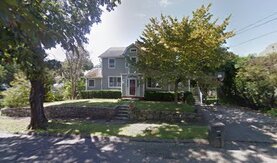 The first house I remember living in was on Elmer Street in Springdale, Connecticut. Springdale is a section of the larger city of Stamford which at the time was a small bedroom community. It’s about an hour from New York City, and the New Haven train line ran commuter trains regularly. Dad worked right in town, unlike so many other dads, so he was often around and involved. Mom worked part-time as a nurse, but my brother and I always had one or the other parent around. If Mom worked nights, Dad would make sure he came home in time to take over. When we got to be school age, Mom started getting jobs during our school hours. We grew up in a neighborhood with gangs of kids running around. When not in school, we left after breakfast to play, came back for lunch and again at dinnertime. In the summer, we could stay out for a while after dinner too. We were all free-range kids back then. I was very shy and afraid even of my own shadow. It was always hard work for me to cultivate relationships. It’s a skill that I’ve had to learn over the years. Mom was great at it. She befriended everyone regardless of their age, gender, orientation, ethnicity or position in life. Whoever you were, she wanted to know you. She was friendly and fun and usually the life of the party. I was more like Dad, who preferred to stay in the background quietly observing everything and enjoying Mom’s antics. They played with us outdoors with Mom teaching us how to double-dutch jump rope. Dad hung swings and rope to climb and swing on. They often played hopscotch or a game they called “Frozen Ice.” It was a race where you had vinyl sheeting cut into random shapes that you’d lay down on the ground, one at a time, putting one foot down then tossing the next and putting your other foot down and so on to the finish line. It was a race so you were supposed to go as fast as you could. All the kids loved watching Mom and Dad race each other bumping the other one to slow them down. Mom even insisted on trying out a kid's new go-cart and got stuck in it. She couldn't reach the brake and couldn't take her foot off the accelerator, so she rode around until it ran out of gas with its owner running after her yelling at her to stop. The whole neighborhood was in an uproar so Dad finally took us inside and closed all of the drapes. Dad was also always good at showing us how not to do things. He was such a good sport but clumsy. I guess I also inherited that from him. One time he wanted to show me and my brother how to swing safely on a rope swing he had just hung in a big old oak tree. The tree was on the edge of a rise in the yard that Mom had terraced to help prevent erosion, which was a big problem. Dad explained that we would swing out from the side of the tree, swinging out over the yard and giving a big enough push to make it all the way around without crashing into the tree. Then he demonstrated. After he picked himself up off the ground, he turned to us and said, “That’s how not to do it. Now you try.” And we did, both successfully. We often learned safety lessons that way. The Elmer Street house was a wonderful neighborhood but a weird house to live in. We lived in half of the large house. The other half was uninhabited and furnished with covers over everything. There were double glass doors with heavy curtains that separated that side from us. Sometimes I would peer through the tiny gaps in the curtains and wonder about it all. It was mysterious, and I was curious. I asked Mom but she either didn’t know or didn’t want to tell me. Every once in a while, Mrs. Fromm would come to visit the house. I have a vague feeling about her and can almost remember what she looks like, but not quite. She was as much of a mystery as the house, and I was too timid to even look up much. I used to make up stories about what must have happened. It had to be something tragic that she couldn’t face. That’s why everything was covered up and gathering years and years of dust. My bedroom was a dead-end in the upstairs. It was off my parents’ room. I liked it because my brother had no excuse to go in. There were other rooms upstairs. Our bedrooms were on one side of the stairs, and there was a hallway on the other side with rooms off of the hallway. There was one off of my bedroom that was behind a locked door. I peeked through the keyhole a few times, but it was creepy. At one point I stuffed something into the keyhole so that nothing could peek in at me. The window in my room was a dormer. Most of the time I loved being in my room, but on stormy nights when lightning flashed and the trees outside cast strange shadows on the walls, I would start to think about that closed off room. Also in that house was a large screened-in side porch. The yard on that side wasn’t very exciting. From what I remember, it was mostly shaded and damp. We never played there. But the other side had a great yard. There was an ironwood tree. It was a perfect climbing tree. The branches were strong and spaced out just right. There was one closest to the ground that grew horizontally for a while then grew up and back out again. It was our “horse.” It was long enough that it would bounce but even a grownup could sit on it safely. I loved that tree. I often took a bunch of books up to the top branches and read for hours. I liked being away from everyone. As I said earlier, socializing was hard work for me. I was also scared a lot, so being up in the tree was ideal. I was safe and could see trouble coming before it reached me. The rest of the yard was large and sunny with a mulberry tree down in the far corner. We picked mulberries every summer and grapes every fall. Mom made jelly from the grapes and from red currants that she got from a friend. The neighborhood was great. When we got old enough to go to school, it was an easy walk. There was a playground and a library next door to the elementary school. There was also a summer day camp at the playground that you could just drop in when you wanted. Halfway to the school was an old fenced in church lot. It was blacktopped so there was roller skating there and sometimes a church fair. A little past the school was Bill and Fred’s. It was kind of an early convenience store. It was a smoke shop, soda counter and candy store. We all went there, when we were old enough to go that far, to buy penny candy. We bought wax lips, wax soda bottles filled with some kind of sweet syrup, candy necklaces, candy dots on long sheets of paper and atomic fireballs. Those were my favorite. Bill and Fred were too older men who smoked cigars in the store. They were nice enough but not overly friendly which was fine with me. It always felt like I was doing something elicit when I went there. Maybe it wasn’t me doing it. Maybe I just sensed something off. Stamford was a very corrupt town. There was a thriving underworld that was quiet and kept to itself for the most part. But it was there, nonetheless.
School was a sudden disruption to my life. I liked being at home. I already knew how to read before entering kindergarten. Mom and Dad’s friends were all educated people. Dad was a newspaperman. He covered current events and the Republican side of politics. Later on, he wrote a weekly column. Mom was a Registered Nurse. I was surrounded by medical professionals, writers, lawyers and politicians. My parents did not believe that children should be seen and not heard. They included us in all of the adult conversations. We were encouraged to think and ask questions. We were also encouraged to voice our opinions but had to be ready for the aggressive counter arguments if we had different beliefs. Mom taught me science related things. We did experiments, gardened, identified birds, insects and plants. When I started school, I was on my own without a safety net. I had no tree to climb when I felt overwhelmed. There were all of these kids I didn’t know. No one from our little neighborhood gang was in my class. I was afraid, and I was bored to tears. I have a vague memory of having a nice teacher in kindergarten, but I made no friends. I don’t think I had a school friend until fourth grade. I spent most of my time working on my invisibility cloak and daydreaming. I hated school. For me, it was a wasted six hours a day. I could have spent that time reading and learning something of value. I don’t think it was the fault of my teachers. I think it was my own social anxiety and the fact that my own learning was way ahead of the curriculum. With my social issues, it would have been a disaster to move me ahead into a higher grade. I was already musical when I was born. My parents loved to tell me that I sang before I spoke. They knew I would be a musician. I was singing sentences before I actually spoke words. I could sing a round by the time I was two and was soon singing descants and harmonies. Dad sang all the time. He had a song for everything. He was a frustrated musician. By that I mean that he loved music and wanted to play it but never seemed to pull it off. When he was a child, his parents, having paid for music lessons for their first three children, stopped providing them for Dad and his younger brother. But he didn’t give up. He was in musicals and chorales in high school and college, but then he didn’t pursue it. He bought himself a guitar for five dollars from the Red Cross when he was in the Navy and knew a few chords. He could also play a little on a saxophone that he owned and on the ukulele. He became a young father and main breadwinner with no time to take music seriously, but he still loved it and surrounded himself and us with it. When he wasn’t singing, he was playing records. He had mostly classical, jazz, blues and big band albums. Many of his friends played music, though. One of them, Sterns Woodman, could play any song on any instrument by ear. All you had to do was sing it to him. I was in awe of him, and there were others. I was so blessed to have grown up in that music-filled environment. I just had my 68th birthday and have been looking back at my life and family history. The things we inherit are unpredictable. We often inherit health issues, as I have. But we also inherit behaviors and beliefs. Sometimes we can overcome those, but some of us get caught up in it all. I found the only way for me to avoid the disfunction and abuse in my own family was to leave home and physically distance myself from my already emotionally distanced family. Now that my original online memoir project is finished, I'm working on putting the book together and realized that I needed to start looking at my early years. I'm glad I put it off for last. It was too difficult to start there, but I think I have a different perspective now and can write it fairly. At least I hope so. My parents were madly in love with each other. They were always physically affectionate with each other. Sometimes Mom sat on Dad’s lap, they danced around the kitchen, and you could just feel their love. I used to see the look in my dad’s eyes as he gazed at Mom and knew I wanted that for myself. However, I soon learned to not look anyone in the eye lest they notice you. To this day, I have to make myself look into your eyes and even then, I’m sometimes looking through you. I have very few memories about my childhood. Most of them are memories of stories told to me. I do have a few, though. Some of them are very unpleasant, others are of places we visited or of times I did things without my family, but most of my early life is a blank. I think that may be a good thing. Mom was born to an Irish immigrant mother and an American melting pot father. The story I was told was that Nannie came from Ireland to Ellis Island when she was eighteen where she could then meet up with family. I can’t imagine how a difficult journey that must have been. She left her immediate family behind to start fresh, not knowing when or even if she would see them again. It wasn’t like she could hop on a plane back then. There has been a rumor in the family that she may have been pregnant, but no one ever talked about the past. I know absolutely nothing about my grandmother’s life, but I’m pretty sure I inherited her courage and restless spirit. Although she died when I was around 3, I have vague memories of being around her and of loving her dearly. When I think of her, I feel loved and at peace. Even Mom didn’t know anything about her own mother. It seems that her life in Ireland must have been very unpleasant. I know only a few things about my grandfather on my mother’s side. Mom referred to him as “Pops.” I know that he loved gardening and had what could almost have been a small farm right in a vacant lot in Hempstead, Long Island. I don’t know what he did for a living or if he had any hobbies. The only thing that my mother ever told me was that he became an alcoholic, or maybe he just stopped hiding it, when she was in high school. She said he would come home most nights in the middle of the night and wake her up crying about what a bum he was and telling her he was sorry. She was always worried that she would run into him when out with her friends and never had any friends over to the house. I have a photo of him at Mom and Dad’s wedding, but that’s the only one. I guess Dad insisted on having him in the wedding, but he did get drunk and cause a scene at the reception. Mom had four brothers. Three of them were older, and there was one younger. They all drank and were wild each in their own way. Uncle George was like a bulldog, short and stocky, muscular and strong as a bull. He inherited his dad’s alcoholism and also became addicted to drugs but sobered up eventually and managed to save his family. I had very little contact with him, but he later became one of my fiercest allies. Uncle John was the youngest and married a German woman he met in the war. Uncle Harry was the oldest and was quite a character. He had a different father, and we never heard anything about his dad. Uncle Joe was my favorite. He was a gentle giant and loved me as much as I loved him. After he married Aunt Gloria, I didn’t see as much of him, but he was always in my heart. We didn’t visit Mom’s side of the family as much as Dad’s, and I never understood why. Joe and Gloria lived in Hempstead, Long Island, New York, within walking distance of my dad’s brother and my cousins. So, my cousins and I would often walk over to visit him when we were in town. This usually caused trouble between my parents though, because Mom was resentful of not seeing her brothers often enough and felt guilty about not reaching out when we were on Long Island. I know quite a lot about Dad’s side of the family. They were all French-Canadians who had settled in Fall River, Massachusetts. My grandmother’s family were quite well to do. They all had good well-paying jobs or owned their own businesses. They were also the musical side of the family. Grandma played piano beautifully. One of her brothers played piano and organ for silent movies. Another brother was in vaudeville. She and her siblings were all expected to have music lessons, and they excelled at them. Grandpa’s family were mostly tradesmen. Some of the women worked in the Granite Mill, where there had previously been a fire similar to the one at the Triangle Shirtwaist Factory. One of their brothers lost so many fingers from working at a factory that he could no longer do that work and became a teamster back when they actually ran a team of horses.
We visited with those grandparents often. They lived in Niantic, Connecticut, near New London. Grandma had been repressed by her family and by the nuns who schooled her, and she was mostly unpleasant to be around. She rearranged Mom’s kitchen cabinets when she came to visit because her way was more efficient. She often suffered from severe headaches and needed to take it easy when visiting. We later found out that Grandpa, who was a pharmacist, supplied her with all kinds of remedies for her headaches. A cousin and I found a hidden compartment in the back of her medicine cabinet that had a wide variety of schedule 2 drugs. I guess Grandpa wanted to keep her mellowed out. Grandpa was wonderful. He laughed a lot, wasn’t afraid of playing and getting dirty and was a bit of a joker. He smoked a pipe, and I can still smell that aroma. I found out later that he drank heavily. I guess that might have explained the devil may care attitude, but I adored him. Every morning for breakfast at their house, we would have soft boiled eggs in egg cups. The toast was cut into fingers so that we could dip them in the egg yolk before carefully scooping out the cooked white that was left at the end. My brother and I got very good at scooping it out without damaging the outer shell. Every morning, we would turn the empty shell upside down and offer them to Grandpa as second helpings. Every morning, he would fall for the joke, laughing uproariously when he cracked into that hollow egg. I have so many memories about visits there. Dad’s two sisters also lived nearby, but we only regularly visited with one of them. Aunt Yvette was the outcast of the family. She had married a sailor who was a pretty sleazy guy. He cheated on her and beat her. Dad got into a fist fight with him over it once well before I was born. Aunt Yvette was now divorced, smoked cigarettes, swore and took lovers eventually having three children. I liked her. We even exchanged letters when I was in junior high and high school. I admired her free spirit. She didn’t seem to care what anyone thought. She was living her life on her own terms. Unfortunately, she was abandoned by the men in her life, left to fend for herself, so she was also poverty stricken. She and Dad had never gotten along as kids, so it was easy for him to ignore her. She lived for a while in the apartment that my grandparents rented out. I did see her then for brief visits. As soon as Mom and Dad realized where I was, they carted me away. Aunt Nickie and Dad were very close. Aunt Nickie was a Registered Nurse. She was always playing her guitar and singing. She wrote parodies and other songs as well. She recited poetry and was fun-loving like her dad. But she and her husband Hap fought constantly. I never understood why they were together. They had separate bedrooms and were vicious with each other. In all fairness, most of Dad’s family had inherited a mean streak from my grandmother. They were always demeaning each other. Nobody and nothing were ever good enough. But Nickie also laughed a lot and made us laugh as well. Uncle Hap was a large, loud man. He was a volunteer firefighter and immersed in Little League. The thing I remember most about visiting them, other than the music and having cousins, was Aunt Nickie’s strawberry patch. I don’t know why that’s so vivid, but I can picture it in my mind as I write and can almost taste the sweet flavor of a fresh picked berry. Dad’s younger brother Eddie lived in Missouri, so we rarely saw him. He would come visit Grandma and Grandpa once or twice a year. He was a high school counselor. He was kind of cocky and definitely a know-it-all. He always had some kind of criticism and was full of advice for ways to do things better. He was a bachelor but was an expert on relationships and raising children. He also knew all about housekeeping, cooking, and everything you could possibly think of. I always dreaded his visits and tried to avoid him as much as possible. The visits to that area of Connecticut were often filled with drama. Eddie didn’t get along with Nickie and Hap’s oldest son, who was not that much younger than him, and they often got into a fist fight at family gatherings. There was always at least one fight at family events, sometimes involving Eddie or my older cousins Harold or Raymond. Sometimes it would be with a friend of the family. Even my Uncle Hap would throw a punch or two at times. I quickly learned to see it coming and manage to stay out of the arena. My cousin Sandra always fainted, bringing the fight to a conclusion. Dad was also close to his older brother Lou. He and his wife Marty lived in Hempstead on Long Island where Mom grew up. Lou worked as an engineer at Grumman Aircraft. Marty was an academic, teaching on a college level. They ended up having three children with ages that matched my brother’s and mine. We spent most of our family time with them. We were only an hour’s drive apart. Because it wasn’t a far drive, we’d often go visit on a Saturday and spend the whole day. Then we would convince our parents to let us stay the night if the other set of parents agreed to make the return trip. I was allowed to go by myself for a few weeks in the summer or part of other school vacations. My brother and I, along with our three cousins, formed a pack. As I grew older, I started noticing how much alcohol my parents’ siblings drank when they got together. Every one of them was either an alcoholic or a recovering alcoholic. Mom and Dad mostly drank socially, though they did like to have one cocktail before dinner. Lou and Marty were responsible for my parents meeting. They met at an American Legion meeting. Mom had become a registered nurse and worked in the local hospital. Her friend encouraged her to come to a dance at the Legion Hall. Dad had gone to a two-year college before enlisting in the Navy during World War Two. Upon returning home, he joined the Reserves and went back to school to become a journalist. He got called up and sent to Korea just before he finished his final year. He often stayed with Lou and Marty and went to that same dance. They didn’t really get along very well at first, Mom saying that she hated the Navy, and dad insisting he hated nurses. But Mom gave him her phone number and when he called, due to a lot of encouragement from Lou and Marty, agreed to go with him to Jones Beach where they fell in love. They got married soon after and Dad got a job in Little Falls, New York, where I was conceived, and started his job as a cub reporter and part-time photographer. He eventually landed a better job as a full-time reporter at The Stamford Advocate in Stamford, Connecticut, and Mom got a job at Stamford Hospital. I was born nine months after they were married. I’ve been told that I wouldn’t eat at first. They had to force feed me, and I most often vomited everything back up. But Dad came home religiously every day at lunch to give me my noontime bottle. He would be draped head to toe in sheets but apparently, I always managed to find a spot that wasn't covered, and he would go back to work smelling like a sick baby. I had a few intravenous feedings and eventually figured out how to survive. I think I’ve always been a fighter. Maybe that early time taught me not to give up. Although Mom and Dad had pretty good jobs, the cost of living was more than they could handle, especially with a child. We lived in a tiny apartment at first. The kitchen was so small, they put the refrigerator in a closet. When I came along, my crib went into that closet, too. I was also told that I was found by a neighbor wandering down the busy city sidewalk stark naked when I could barely walk, scooped up and returned to my mom. I guess I was born to be an explorer. After a little while they rented one half of a house in a residential neighborhood. |
Archives
January 2024
Categories
All
|
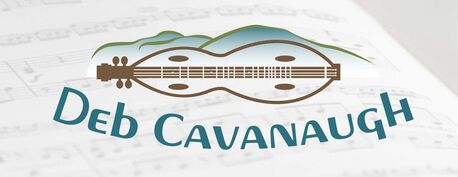
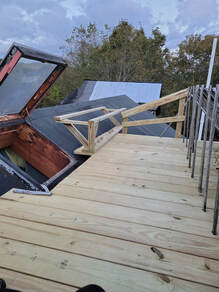
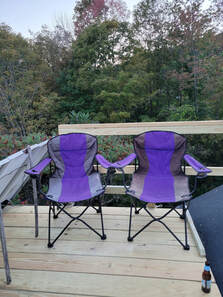
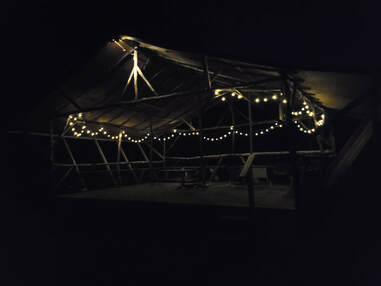
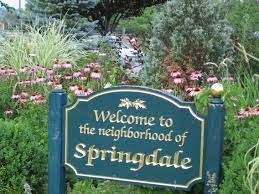
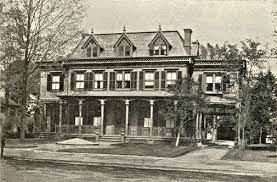
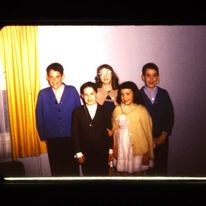
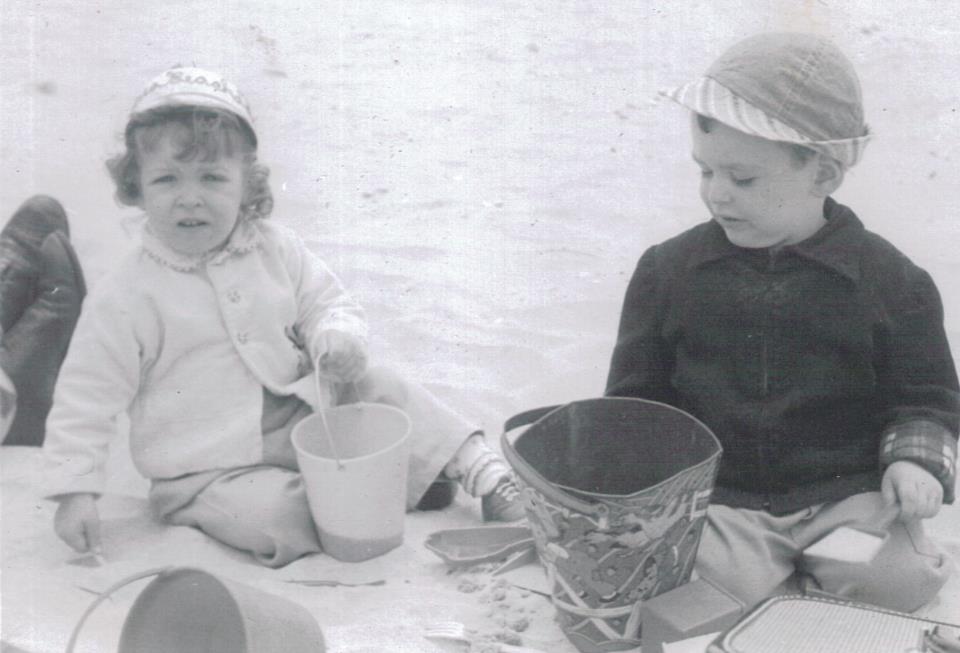
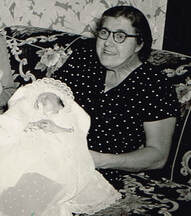
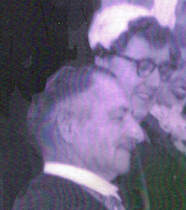
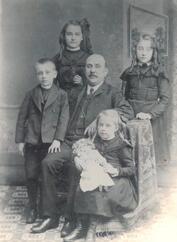
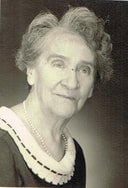
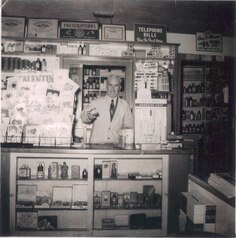
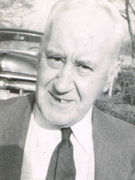
 RSS Feed
RSS Feed